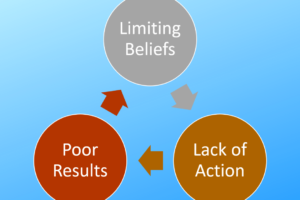Table of Contents
Review
So here we are less than a week away from the new year. This is the last of our trilogy on New Year’s Resolution and we will be going over the SMARTER Goal framework. First, let’s review where we have been.
Week 1
In this first week, we discussed the overall goal of these posts. That was to get prepared so that we could actually succeed with our New Year’s resolutions. With that preparation, we began searching for an accountability partner. We also listed out some great steps to start down your New Year’s resolution journey. Part of that list was failing with the purpose of figuring out where your resolution fit in your current life.
Week 2
Last week, we discussed getting a fresh start on the new year. I walked us through some of the grieving process. This wasn’t the grieving process of losing someone important or some truly traumatic experience. I count myself wholly incapable of delivering anyone through such a trying time. This is a much simpler grieving process. It is a grief of all the missed opportunities, failures and hurts of the past year. Without grieving, we let things build up throughout the years. It puts us in danger of burnout and doesn’t allow us to start our new year fresh. We carry too much baggage on our goals without properly letting go.
Narrow it down
The purpose of the SMARTER goal framework is to narrow down your goal. It is to change your new year’s resolution from something nebulous, like start journaling, into something like journal 5 out of 7 days a week about the 8 questions from the full focus journal so that I can keep track of everything I learned and all my thoughts over the year. So, I can see how much a grow. So, I can practice my writing and so I can be in a better mood, to be a better dad and husband. We will break down how I came to journaling after I explain the SMARTER goals.
SMARTER goals
SMARTER goals are an expansion by Michael Hyatt’s company on the SMART goal system first mentioned by George T. Duran. Duran’s SMART goals were meant to systematize goals. Once goals were systematized, they had greater clarity which made the more actionable, measurable and objective. SMART goals are especially helpful in group and team settings because it provides a method of clear communication about expectations and responsibilities of all team members.
Once goals were systematized, they had greater clarity which made the more actionable, measurable and objective. #resolutions #HappyNewYear2019 Share on XHyatt’s SMARTER goals add a few things that are especially helpful in an individual capacity. They still provide a great communication structure for teams, but they really shine for individual goals. New Year’s Resolutions being a mostly self-motivated and individual goal help this goal system take us from the cloudy goals we usually try to kick the New Year off with into the realm of concrete reality that will make resolutions successful.
I will introduce you to the framework and then we can go through them using my journaling as an example.
The Framework
Specific – this takes the goal and narrows it down. By starting here, you begin winnowing that resolution into a dedicated and manageable goal. For me, I wanted to write more this next year. However, that is not a very specific goal. Am I going to write a book, a journal, articles or blog posts? What am I actually writing? I settled on a personal journal. Mostly for reasons that you will see later.
Measurable – This is usually what sends you right back to step one. Most resolutions don’t start as measurable. Writing more was great, but how do I measure increased writing? Do I use word counts, pages written, posts written, entries written? I went for entries written. Since I had never journaled before the bar was set very low. My goal is to write 5 entries per week. That frees me up for 2 misses a week.
Actionable – This is what you actually do. For me, it is journaling. I will use another example to help clarify. If your goal is to lose weight. The action that you might take to do that is walking or running on a treadmill. For my journaling, I am filling out the questions from the full-focus journal. So the action I am taking is filling out journal entries based on the questions from the full-focus journal.
Risky – Making a goal risky is what makes it a goal. If you have already done it, then you are just re-accomplishing the same thing again. You’re just replaying the level on a video game – usually at the same difficulty. If there isn’t risk you aren’t growing or changing and that’s not really something to aspire to most of the time.
If you have already done it, then you are just re-accomplishing the same thing again. You’re just replaying the level on a video game – usually at the same difficulty. #HappyNewYear2019 Share on XFor me, journaling is brand new. It is also a little risky because then I will know what things I have missed throughout the year. On the flip side, I will know what things I accomplished. Also, it will make me a better writer, but it is going to cost me some personal time to make sure that I actually journal. As an enneagram 5, anything that costs me that I don’t have to do makes me wary. So, while the risk is certainly little, it is still present
Time-keyed – There are a start and end dates. For resolutions that usually means a year-long commitment. However, sometimes your resolution might be something to finish. For example, your goal may be to lose 10 pounds by May. That’s definitely keyed off a certain time.
For me, journaling is supposed to last all year, but I already have check-ins for whether it’s working or not. At the beginning of May and
Exciting – You need to be excited about your resolution or it won’t happen. I am pumped about journaling. It is going to be a ton of fun and a great way to extract data from my everyday life. If it goes well I may even start some excel spreadsheets and a whole bunch of other great stuff. If it goes crummy, I will be bummed. I really want this to work out because I am excited about becoming a better and more prolific writer. Journaling is a small way that fits into my life that I can achieve my goals.
Relevant – This should seem obvious that the goal is related to what you want to accomplish, but you would be surprised at how tangential our goals can be. For example, if I wanted to put more content online then creating a personal journal wouldn’t exactly be helping me do that. It might, but the relevance is low. Similarly, if your goal is to lose weight, then reading a book a month might not help. Your goal has to be directly connected to why you want to accomplish that goal in the first place. Relevance is that final check to make sure your goal makes sense.
Our Goals
So most resolutions look like this:
I resolve to write more this year.
A SMARTER goal looks like this:
I am going to journal 5 out of 7 days a week. For that journal I am going to answer the full-focus journal questions. I am going to review the journal in May and August. I am excited to try this new style writing and self-reflection and I hope it will enable me to create better written content for my books and articles because I will simply be practicing my writing more often in a self-reflective manner.
Which one do you think will actually get accomplished this year?
Go and do likewise. Narrow your resolution down by making it SMARTER.
Reminders
As a reminder, my new book just came out! Click here to check it out on A
Also the email community is continuing to grow join here.





